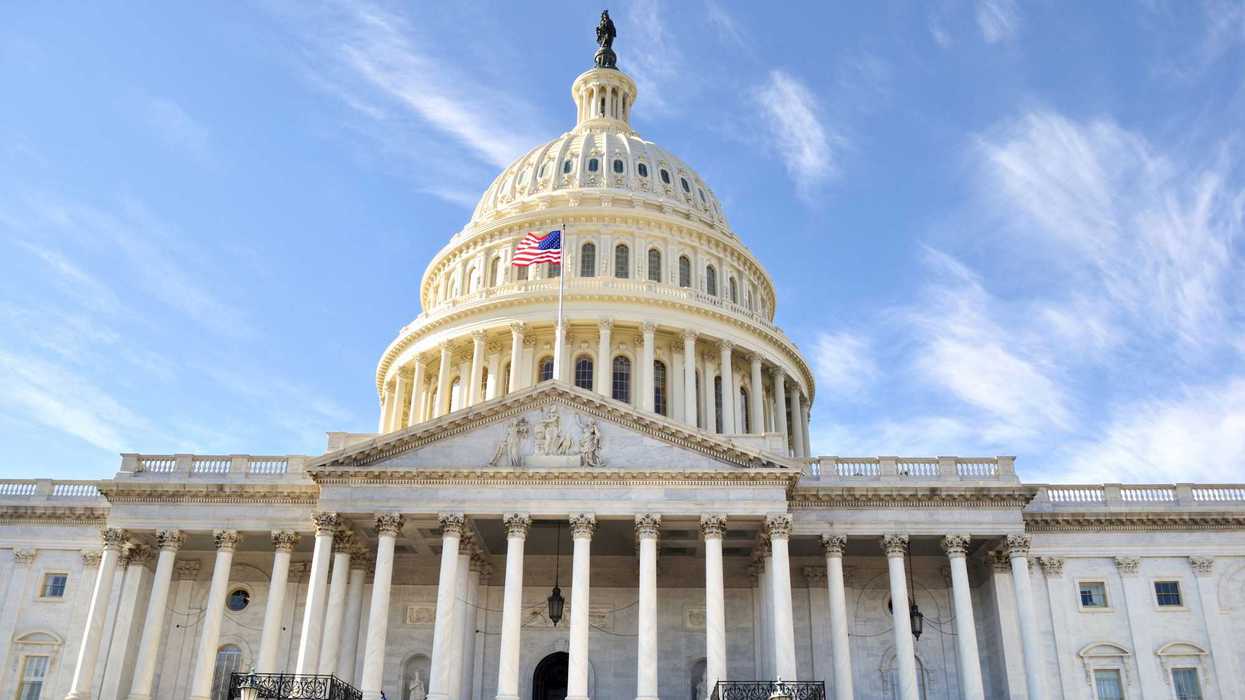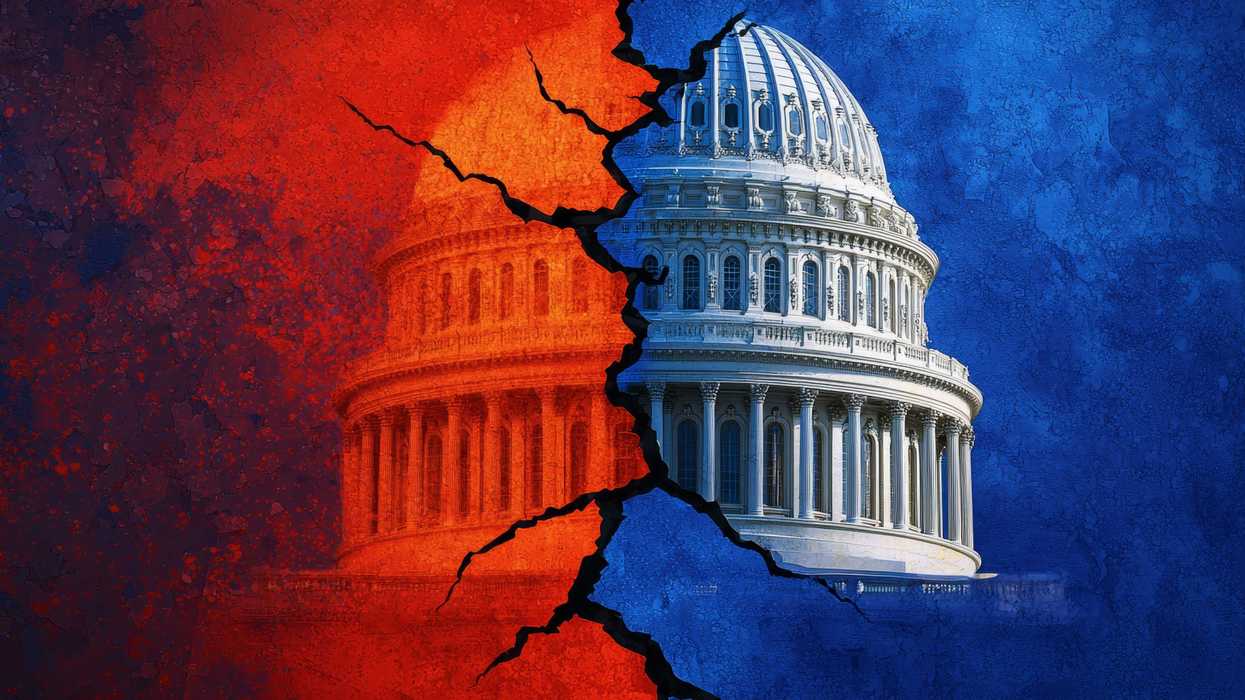The Fulcrum introduces Congress Bill Spotlight, a report by Jesse Rifkin, focusing on the noteworthy legislation of the thousands introduced in Congress. Rifkin has written about Congress for years, and now he's dissecting the most interesting bills you need to know about but that often don't get the right news coverage.
No longer would July 13 only be known as National Beans ‘n’ Franks Day or National Barbershop Music Appreciation Day.
Context
On July 13, 2024, Donald Trump was shot at a Butler, Pennsylvania, campaign rally in an assassination attempt.
Though a bullet hit Trump’s ear, his life was saved by his coincidental split-second turn of the head a moment prior. Bloodied, he got up off the ground a minute later, pumping his fist and yelling “fight, fight, fight!” in an instantly iconic moment.
A photo by Evan Vucci of the Associated Press, depicting a bloodied Trump raising his fist in front of an American flag, became one of the most famous images of all time. Another photo by Doug Mills of the New York Times, which captured the bullet whizzing by Trump’s head, won the Pulitzer Prize for breaking news photography.
In the immediate aftermath, Trump’s betting market odds of winning November’s presidential election surged to their highest levels during his entire campaign. (He still remained the favorite by Election Day itself, but with less than half his mid-July betting odds.)
The attempted assassin, a 20-year-old with no known motive who fired from a nearby rooftop, was instantly killed by a Secret Service countersniper.
What the bill does
A congressional resolution urges the House to designate July 13 as an annual federal holiday called “Faith and Defiance Day." (No congressional bill to actually designate such a holiday appears to have been introduced yet.)
Among federal holidays, it would fall nine days after Independence Day on July 4 and approximately 50 days before Labor Day in early September.
The resolution was introduced on July 10 by Rep. Michael Rulli (R-OH6).
This continues a recent pattern of Republican congressional legislation honoring Trump in unprecedented ways, several of which The Fulcrum has covered—including bills letting him run for a third term, engraving his face on Mount Rushmore, and adding his face to a new $250 bill.
What supporters say
Supporters argue that such a momentous day deserves perpetual official acknowledgment.
“You see one or two events in your life that inspire you to be more than you are, that strike you to your core. This was one of them,” Rep. Rulli said in a press release. “God saved the president that day, and that’s something worth recognizing for the rest of time.”
“To know a man’s character is to see how he acts in the face of death,” Rep. Rulli wrote in an opinion column for Ohio’s Canton Repository newspaper. “A moment like July 13 hits you on a deeper, more spiritual level. I think that’s what is worth remembering: the main character of our time, staring death in the face and standing tall.”
What opponents say
Besides the obvious Democratic opponents, another counter could come from a more nonpartisan perspective, or even from the Republican side: that it’s wrong to celebrate the day of an attempted assassination.
The U.S. already has two federal holidays honoring assassinated Americans, but both of them mark the person’s birthday instead: Martin Luther King Day in January, plus Abraham Lincoln on Presidents Day in February.
Indeed, in April, The Fulcrum covered a Republican congressional bill to make Trump’s June 14 birthday a national holiday, alongside Flag Day, which has long been more “unofficially” celebrated that same day.
What Trump says
Another (possible) opponent: Trump himself?
While Trump does not appear to have publicly commented on this legislation specifically, he recently mused against the rising tide of holidays in general on Juneteenth (June 19), the most recent federal holiday added in 2021.
“Too many non-working holidays in America. It is costing our Country $BILLIONS OF DOLLARS to keep all of these businesses closed,” Trump wrote on Truth Social. “The workers don’t want it either! Soon we’ll end up having a holiday for every [one] working day of the year.”
Odds of passage
The legislation has not yet attracted any cosponsors, not even any fellow Republicans.
It awaits a potential vote in the House Oversight and Government Reform Committee, controlled by Republicans.
Jesse Rifkin is a freelance journalist with The Fulcrum. Don’t miss his report, Congress Bill Spotlight, on the Fulcrum. Rifkin’s writings about politics and Congress have been published in the Washington Post, Politico, Roll Call, Los Angeles Times, CNN Opinion, GovTrack, and USA Today.
SUGGESTIONS:
Congress Bill Spotlight: Requiring Public Schools Start the Day With the Pledge of Allegiance
Congress Bill Spotlight: Trump Derangement Syndrome Research Act
Congress Bill Spotlight: National Garden of American Heroes, As Trump Proposed



















 Mayor Ravi Bhalla. Photo courtesy of the City of Hoboken
Mayor Ravi Bhalla. Photo courtesy of the City of Hoboken Washington Street rain garden. Photo courtesy of the City of Hoboken
Washington Street rain garden. Photo courtesy of the City of Hoboken
